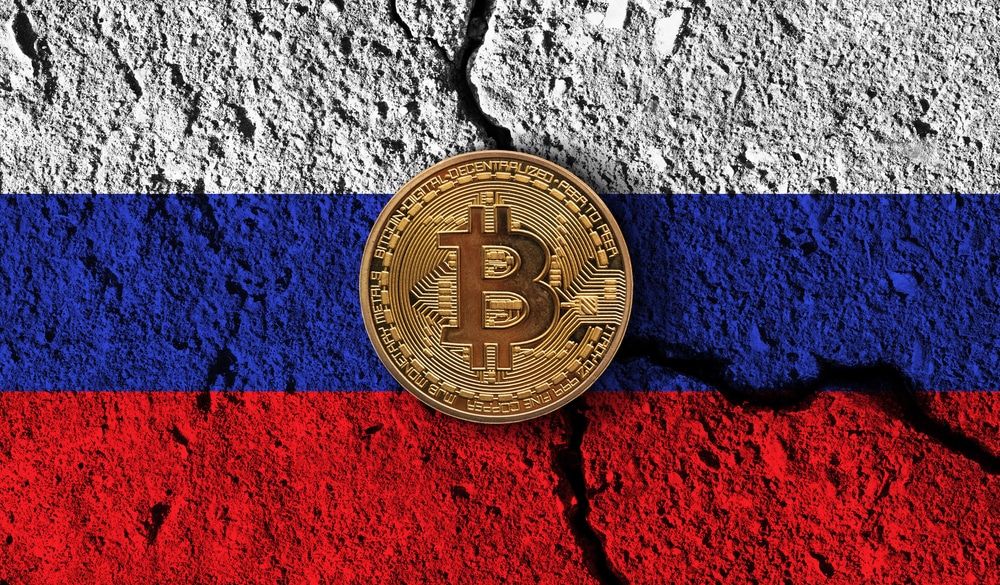Russian lawmakers have unanimously disapproved of the government’s plans to establish its crypto exchange. The decision to abandon initial plans to establish the state-owned crypto exchange ends the mixed signal exhibited by the administration. Ending the plans will enable the government to work alongside the cryptocurrency industry in an oversight capacity.
Russia Lawmakers Support Dropping Plans for State-Owned Exchange
The Russian legislators set the country’s priority in establishing sector-specific rules and regulations to guide the existing crypto enterprises. As reported in the Izvestia publication on Sunday, the change of plans marks a fresh start for the government to harmonize existing proposals on regulating the crypto sector.
The news of Russia’s reconsideration to quit establishing a state-owned crypto exchange platform appeared in Colin Wu Monday 29 tweet. The Wu Blockchain executive lauded the move as the government focus would be nurturing privately-owned companies to establish the crypto exchange.
Bank of Russia to Assume Active Oversight Role
The Izvestia publication cited sentiment by Ivan Chebeskov, Director of the Financial Policy Department of the Ministry of Finance, clarifying that the ministry consistently opposed the creation of a national crypto-exchange. Instead, it supported the opportunity to regulate the process and possibility of establishing such sites.
Chebeskov revealed that the country’s central bank embraced a compromise allowing the introduction of mining aspects within the legal field. The inclusion would facilitate the execution of international settlements and cross-border exchanges though restricted within the experimental legal regime.
Anatoly Aksakov, who heads the financial markets committee in the lower house, supported the shift towards establishing rules that would govern the operation of such infrastructures. He reiterated that several crypto exchanges would receive their permit to facilitate cross-border payments. He was noncommittal, alleging that mentioning them would prompt the imposition of fresh restrictions.
Executing International Payments via Crypto Exchanges
Alexei Guznov, who deputizes the Bank of Russia, admitted that the few unnamed crypto exchanges would constitute the entities facilitating the country’s interaction in export and import matters. Their presence will enable Russian companies to settle payments and honour parallel imports.
Alexei Tarapovsky from Anderida Financial Group indicated that the few permitted companies would facilitate the execution of international settlements using crypto. Doing so would circumvent the sanctions.
Tarapovsky acknowledged that such an organization would likely suffer restrictions. Nevertheless, he admitted that also Western-based operators are also in hot pursuit of cross-border transactions.
Tarapovsky observed that Russian operators are processing over $10 billion in annual payments annually via cryptos. He added that favourable circumstances will likely surface within the legal exchanges by 2024.
The publication by Izvestia indicated that the Central Bank would likely assume regulation of the platforms and manage the international settlements as stipulated by the existing regulatory framework.
The news of Russia dropping a state-owned crypto exchange triggered jubilation among the private crypto operators. BitRiver executive Oleg Ogienko indicated that the self-exclusion of state-backed exchanges would minimize the susceptibility of crypto firms to sanctions and cybercrime attacks. Also, he lauded the move as it reduces the probability of market monopolies emerging.
Ogienko’s view drew reinforcement from the commercial executive at GIS Mining, Ivan Gostev, who asserted that dropping the state-backed exchange would fuel the emergence of more competition and innovations.
Russia Stance Ends Hot-Cold Treatment of Cryptocurrencies
The positive perspective conveyed by the private sector portrays a genuine commentary considering that Russia occupied 137 ranks in the previous year’s Global Corruptions Index. The poor ranking convinces a need to exercise caution when pursuing stately projects.
The official dropping of the mixed bag conduct by the Russian authorities ends the hot-cold handling of the digital asset sector. In particular, the Bank of Russia had in 2022 imposed a blanket prohibition on crypto-based payments. A month later, the Finance Ministry rescinded the outright ban, instead proposing Bitcoin regulations.
President Vladimir Putin would weeks later approve a law prohibiting digital assets-based payments. Later, it would emerge that stablecoins offered an assured path for Russia to bypass sanctions.
The news of Russia abandoning the state-owned crypto exchange coincides with the ongoing Western-led sanctions imposed for invading Ukraine. It marks the end of mixed signals to open a new procrypto chapter for the Russian government.
At Tokenhell, we help over 5,000 crypto companies amplify their content reach—and you can join them! For inquiries, reach out to us at info@tokenhell.com. Please remember, cryptocurrencies are highly volatile assets. Always conduct thorough research before making any investment decisions. Some content on this website, including posts under Crypto Cable, Sponsored Articles, and Press Releases, is provided by guest contributors or paid sponsors. The views expressed in these posts do not necessarily represent the opinions of Tokenhell. We are not responsible for the accuracy, quality, or reliability of any third-party content, advertisements, products, or banners featured on this site. For more details, please review our full terms and conditions / disclaimer.



